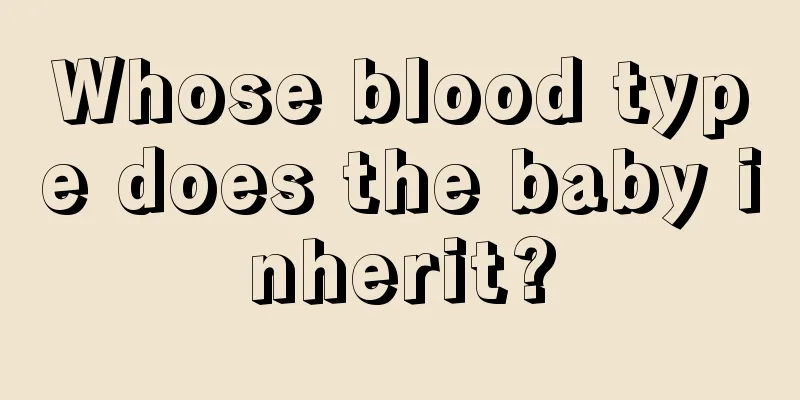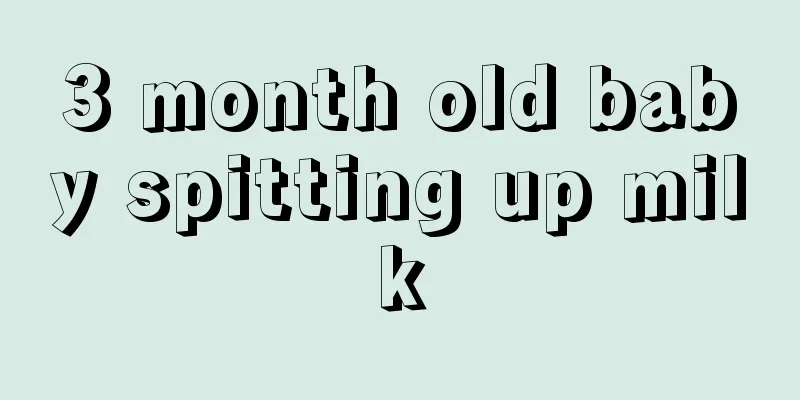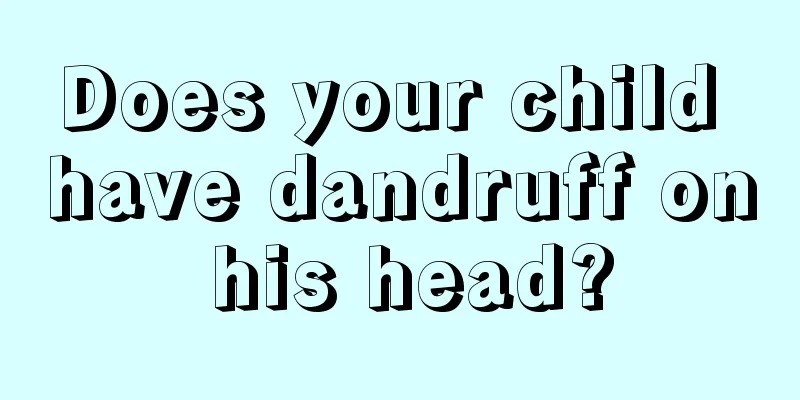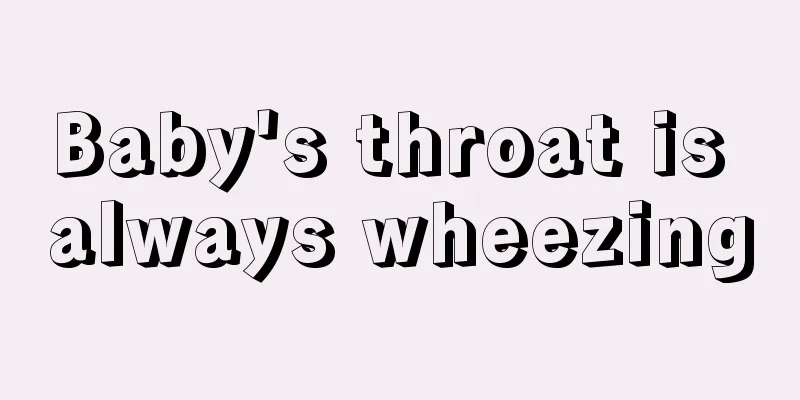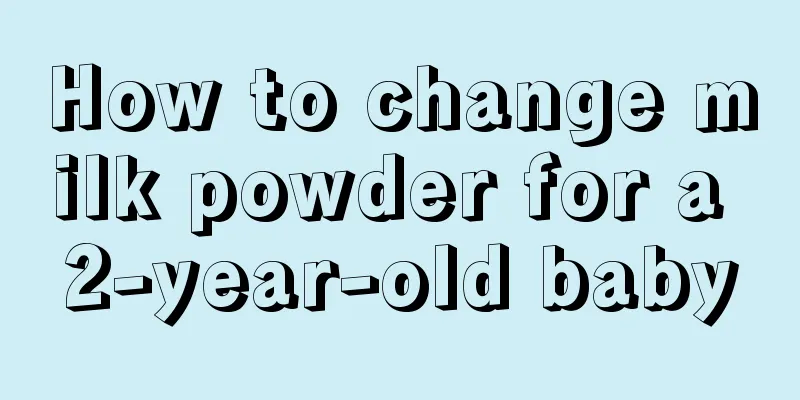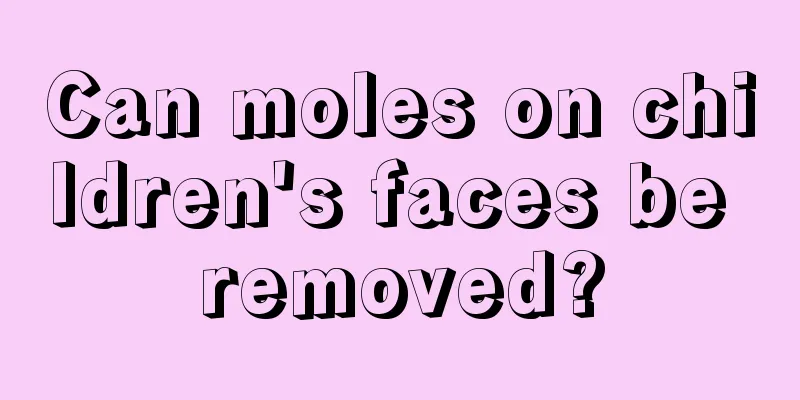Why do two-year-old babies love to bite?
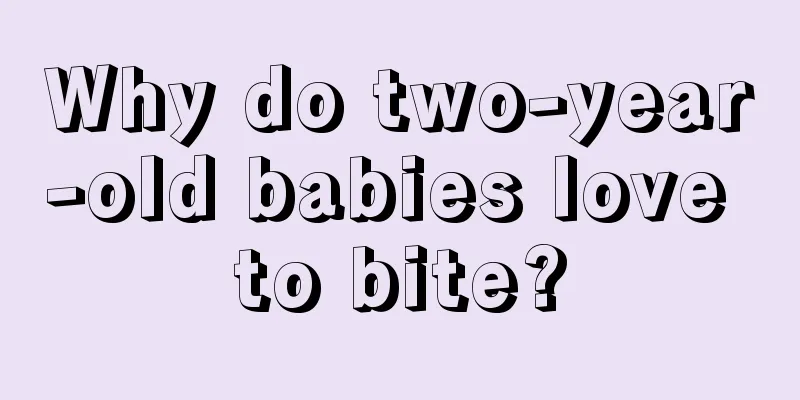
|
A two-year-old baby always likes to bite people. It may be because he is teething and feels uncomfortable and always wants to bite to relieve this uncomfortable feeling. Since a two-year-old baby cannot express his thoughts in words, he will choose to use some body language to vent his emotions. It may also be because of curiosity. Babies at this stage are curious about many things and will imitate the actions of others. 1. Physiological reasons: 1. Biting behavior caused by itchy teeth. Babies of this age are at the peak of their physical development. This rapid growth sometimes causes physical discomfort, such as joint pain, muscle soreness, etc. During the teething period, the gums and mucosa will be irritated and cause itching. Many children bite others due to the itching. They have a strong desire to bite things but cannot get it satisfied. Solution: Give your baby a substitute that can satisfy his biting need. Soft items such as towels. You can also let your children eat ground sticks, spiced beans, orchid beans and green apples to alleviate their special needs during this special period. At the same time, you should give your child more fresh vegetables and fruits that are rich in fiber, such as cabbage, spinach, apples, pears, etc. Cut these vegetables and fruits into shreds or fine grains to give your child more opportunities to chew. 2. Due to the poverty of language. After babies around 2 years old learn to walk, their need for communication develops rapidly as their mobility increases and their range of activities expands. However, due to their lack of language skills and lack of knowledge of how to interact with others, they often use extraordinary means such as pushing, pulling, and biting to attract the attention of their companions in order to achieve the purpose of communication and express their wishes. Countermeasure: Babies should learn to use language. When your baby bites because of psychological dissatisfaction, let your baby understand that there are better ways to express when he is angry and upset than biting. He can say, "I don't want it." If he can't express his opinion clearly, he can ask you for help. For example, sometimes a baby bites someone because he likes the other person very much and wants to be friends with the person but does not know how to express it. At this time, parents should tell him: "I like you very much, can we be friends?" and you can demonstrate it with the baby. In this way, the baby learns to communicate with others using language rather than using his mouth and teeth. 2. Psychological reasons: 1. Biting is a form of release. Babies around 2 years old often show strong egocentrism. When they feel dissatisfied, they will vent it by biting others. For example, sometimes when his parents go out and don’t take the baby with them, he will feel dissatisfied and want to vent. So, when his parents come home, he will vent his anger on them by biting them. Countermeasure: Let your baby play more quiet games or ensure that your child gets enough sleep as much as possible. Studies have shown that intense stimulation is one of the most common factors that cause biting. A baby who has a quiet sleep and gets enough sleep is generally less likely to bite with his teeth. Letting your baby play quiet games and ensuring he gets enough sleep can calm his emotions, and when he is unhappy, he will not resort to extreme biting behavior. And when babies are dissatisfied, you can use quiet games to divert their attention so that they can forget the unhappiness as soon as possible. 2. Imitation out of curiosity. Sometimes babies bite as a form of social imitation. Babies are always very curious. When they see other children biting others, they will think it is a very novel thing, so they will try to bite others. Because babies at this stage have a particularly strong ability to imitate, biting incidents in groups will occur frequently. Countermeasure: Babies lack a certain concept of right and wrong, and imitate others at will out of their curiosity. At this time, they need the help of parents. Tell your baby clearly that biting is a very bad behavior. Mom, Dad, teachers and peers don’t like it. It will also hurt others. It is not a good behavior for babies. You should emphasize this idea to your baby repeatedly. When you see your baby showing signs of biting, you should stop him sternly with words or eyes, and let him know that mom and dad don't want him to do that. Special attention: * If the biting is caused by certain moral reasons, such as stinginess, domineering, excessive desire for performance, etc., special attention should be paid to avoid affecting the baby's character formation. * If you find that your baby has a habit of biting people, it is better to ask a pediatrician to diagnose him. Some young children suffer from emotional instability due to medication, which can be improved by adjusting the medication. |
<<: What should I do if my two-year-old baby has a big bump on his forehead?
>>: What should I do if my two-year-old baby has a bloated belly?
Recommend
How to reduce jaundice in children quickly?
Jaundice in children is a relatively common disea...
The child has a lump on his neck that will slide
Lymph nodes are very important in the human body....
What are the symptoms of a child having a fever and seizures?
Fever can be said to be something that everyone o...
What to do if your baby has a runny nose and difficulty breathing
We all know that babies often have a runny nose w...
Why does my baby keep rubbing his nose?
When your baby rubs his nose, pay attention to wh...
Be careful of these symptoms of encephalitis in children
Many parents will find that their children have a...
Why are children afraid of light? Beware of photophobia
Many children do not understand, so they do not p...
What to do if your baby has scrotal effusion
There are many common problems for babies. The ch...
What to do if water beans itch
For some children with weak immunity, it is actua...
How to correct hunchback in children?
Hunchback has become a common disease in life. Ch...
What should I do if there is a gap between my baby's front teeth?
Every baby is the hope of the family and the futu...
What are the symptoms of seizures in children?
There are many children who are very timid and of...
What causes rosacea?
Diseases are a very common phenomenon in people&#...
What should children eat to increase height and supplement calcium?
The main component of bones is calcium, so if you...
What should we do if students' eyesight deteriorates?
Students' daily eye use is very demanding, no...
